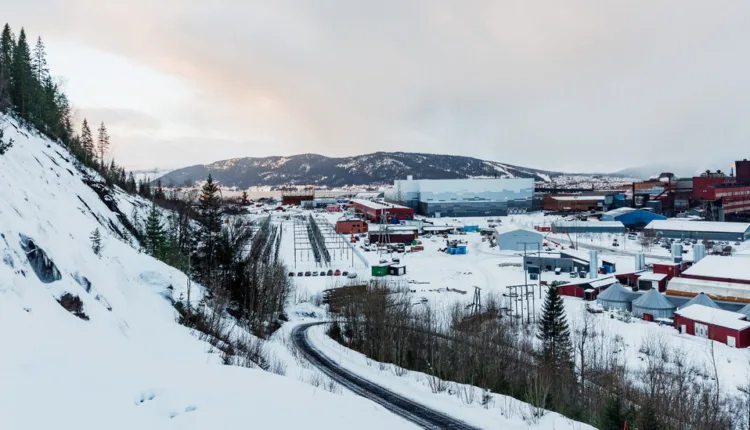
Bidenomics Halts Expected Green Energy Boom in Arctic Town
TL/DR –
The electric battery company Freyr paused the construction of a factory in Norway after the Biden administration passed the Inflation Reduction Act in 2022, which offers tax breaks and grants for clean energy technology. The company is now focusing on setting up shop in Georgia, highlighting a global competition for green industries such as electric vehicles and storage, and solar and hydrogen. This shift presents a challenge for the European Union and Norway, who could fall behind in the race for clean energy, particularly as China currently holds 80% of the world’s capacity to produce batteries.
The Impact of the Inflation Reduction Act on Global Battery Production
In Mo i Rana, a Norwegian town located on the Arctic Circle’s edge, Freyr, an electric battery company, paused its battery factory construction due to the United States’ Inflation Reduction Act of 2022. The Act, offering an estimated $369 billion in tax breaks and grants for clean energy technology over the next ten years, persuaded Freyr to shift its focus to Georgia.
Freyr, currently fundraising to build its US factory, has already changed its business registration to the United States following the Act’s incentives. This move highlights a global tug of war as countries compete for firms and technologies that will shape the future of energy.
Mo i Rana, trying to establish itself as Norway’s green energy hub, has felt the impact of these competition. Local authorities hoped Freyr’s factory could attract thousands of jobs to their town. Instead, the company now employs about 110 people locally at its technology-focused testing plant.
A Clean Energy Race
The implications of this competition extend beyond Mo i Rana to the European Union and Norway. They are facing the risk of falling behind in the clean energy race. Batteries essential for green energy grids and electric cars are primarily produced in China, accounting for 80% of global capacity.
Before the announcement of the Inflation Reduction Act in August 2022, companies were steadily adding battery capacity in Europe. After the law was announced, European capacity plateaued, and expected U.S. capacity shot up. Companies are being driven by factors including higher energy prices and greater clean energy market certainty in the United States.
An Industrial Town
Mo i Rana’s industrial history, marked by shifts between state assistance and free-market principles, originated in the early 1900s with a company tied to Thomas Edison. It continued with the establishment of a state-run ironworks after World War II and ended with privatization in the late 1980s.
Local authorities see sustainable energy as crucial to attracting and retaining young people and securing future growth. “We want to be Norway’s green energy capital,” says Mayor Geir Waage.
A Global Subsidy Push
However, the resurgence of targeted subsidies in the United States and elsewhere, such as Canada’s tax credits and India’s proposed battery subsidies, is testing commitments to these rules. The US’s generous new production tax credit offers companies attractive stability, something other nations struggle to compete with.
Europe loosened its tight restrictions on state aid last year in response to the Inflation Reduction Act. Despite this, European subsidies cover only around 20 to 40 percent of a firm’s investment cost, compared to over 200 percent in the United States.
Collateral Damage
Regardless of the subsidies on offer, not all companies are guaranteed success. Freyr, for instance, is still working to prove that its key energy storage technology is scalable. Furthermore, it has recently faced setbacks, with its stock price dropping due to development delays.
—
Read More US Economic News
